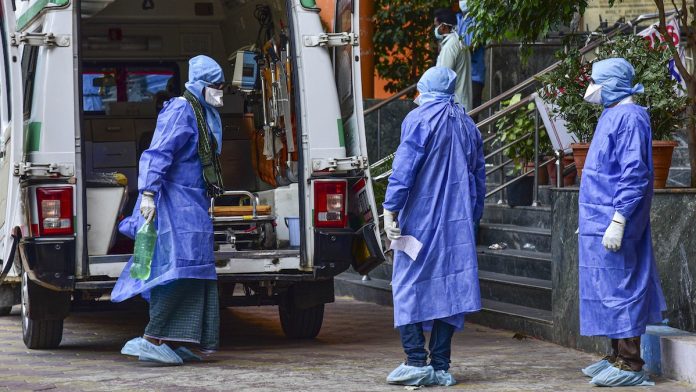A sporadic spike has occurred in Avian influenza cases in many states in North, West, and South India (bird flu). States such as Himachal Pradesh, Rajasthan, Madhya Pradesh, and Kerala have recorded nearly 25,000 deaths, most of them from ducks, crows, and migratory birds.
The news has begun to cause panic among the people. People who are still afraid of infection with Covid-19 are afraid that bird flu, which is also a viral disease, could turn into an epidemic. The health experts, however, refuted such a possibility and urged the public not to worry, but to take precautions.
The doctors said that there is a very rare chance of human-to-human transmission of the H5N1 virus that causes bird flu unless one works in close proximity to the infected bird species.
“People who work closely with poultry are at high risk of getting the infection. Otherwise, human to human transmission of the H5N1 virus is very rare. Hence there is no need to panic,” said Dr. Harshal R. Salve, Associate Professor at the All India Institute of Medical Sciences (AIIMS) Centre for Community Medicine.
“The bird flu is detected in sick birds and has the possibility to spread among humans only with those handling poultry or infected birds,” said Dr. Rajeev Gupta, Director of Internal Medicine, Max Super Speciality Hospital, Shalimar Bagh (Delhi) (Delhi).
Dr. Upali Nanda, Head, Preventive Health & Consultant-Medicine, Qutab Institutional Area Medeor Hospital (Delhi), also said that it is very rare to transfer Avian Influenza from human to human.
“There is no evidence available that suggests the spread of bird flu through eating meat or eggs. Nonetheless, eating raw meat and eggs should be avoided in the affected region till the incidents come down,” Dr. Salve advised.
Furthermore, the public should not leave their guards and continue to stick to healthy, sanitary practices in the midst of the pandemic, so that any risk of an H5N1 virus is clear.
Dr. Nanda said that eating semi-cooked meat and eggs is not advisable anyway. ‘Even in addition to properly cooking meat and poultry, people should take special care,’ she says.
“Wash your hands with warm water and soap, especially before and after raw poultry and ovine handling. Use various utensils to prepare the raw meat and make sure the meat is properly cooked until steaming hot.
She also indicated that live animal markets and poultry farms should be avoided for now. “If need be, wear a mask and gloves all the time. Also, do not go near or touch bird droppings or sick and dead birds,” added Dr. Nanda.
In poultry birds, the bird flu is still not observed. Samples of animals sent across India for disease detection have been confirmed by the National Institute for High-Security Animal Diseases to have yet to detect the existence of the H5N1 virus in poultry birds.
The President of Ghazipur Mandi, the largest poultry market in the national capital, also announced that the market has not yet reported any incident of bird flu in chicken meat.











